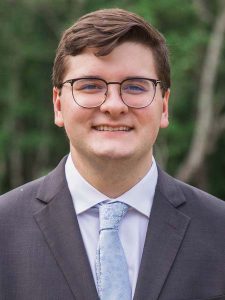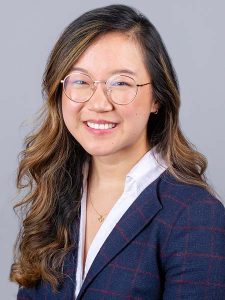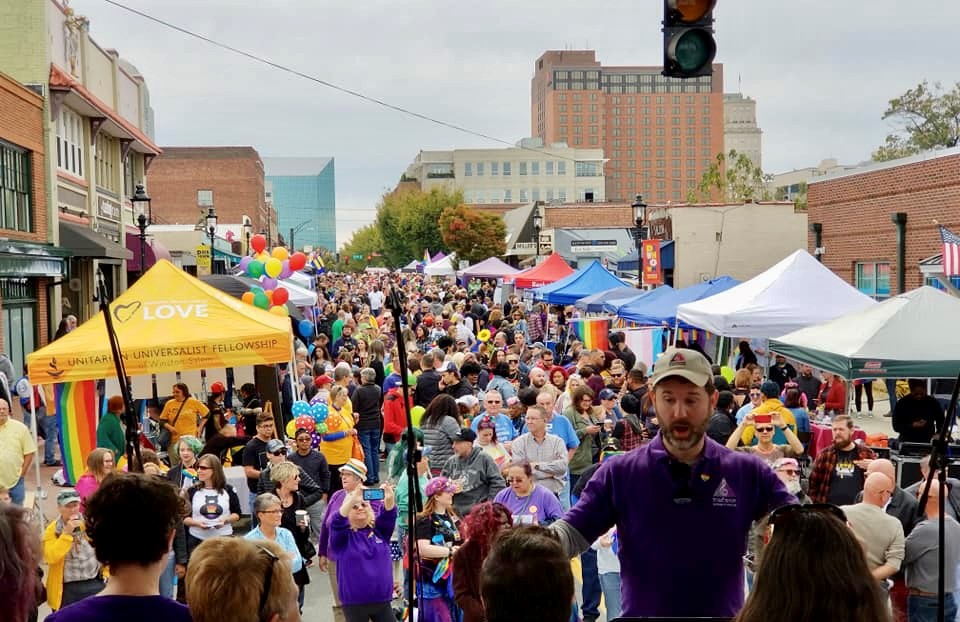PA Students Learn to Care for LGBTQ Patients
Two PA Students Take Advantage of Program Curriculum; Student-Run Clinic with LGBTQ Health Initiative
June 23, 2022
PA students Joshua Penninger and Jessica Yue share how their universities’ coursework and hands-on clinical experiences have prepared them to address the specific needs of LGBTQ patient populations.
Penninger attends Wake Forest University’s PA program and is enrolled in the Advanced Training in Gender and Sexual Minority Health Care Certificate, a year-long supplemental program offered by the Wake Forest School of Medicine. Yue, a student at the Rosalind Franklin University of Medicine and Science, works at the University’s Interprofessional Community Initiative (ICI) – a student-run clinic – and describes their forthcoming project to provide gender affirming healthcare services. While Penninger and Yue are learning about LGBTQ healthcare in different ways, the lessons they take away will positively impact their ability to care for future LGBTQ patients.

Learning About LGBTQ Patients’ Needs
Penninger participates in the Wake Forest University’s Advanced Training in Gender and Sexual Minority Health Care Certificate, which is available to all PA, MD, and CRNA students at the university. The program primarily consists of virtual lectures, given by healthcare providers, that center around caring for LGBTQ patients. According to Penninger, students hear from experts in primary care, obstetrics and gynecology, endocrinology, surgery, and psychiatry.
“This broad range of topics allows students in the program to get in-depth exposure to the entire healthcare needs of LGBTQ+ patients and how to provide that care,” Penninger says.
In addition to coursework, the certificate requires a capstone project, participation in a three-night, interprofessional “Safe Zone Training” workshop, and three electives that can be completed by volunteering at community LGBTQ events or participating in supplemental lectures and workshops. Penninger says he values the program’s comprehensiveness and flexibility, as all lectures are recorded and virtually accessible.
[Receive unparalleled career services and support – join or renew your membership today]

Providing a Community Service
Yue volunteers at Rosalind Frank University’s Interprofessional Community Initiative, a student-run, pro bono clinic that serves the uninsured populations of Lake County, Illinois. Through this clinic, students learn and serve the community by providing direct patient care and engaging in various research projects.
According to Yue, one of the ICI’s major goals is to fully implement transgender and gender affirming healthcare services. The clinic hopes to be able to offer patients regular clinic visits and primary care, general mental health support, gender affirming hormone therapy, referral for hormones within the ICI, and lab monitoring. “We’d also aim to provide physical therapy for transgender and gender diverse patients, which is an important element for care after some gender affirming surgeries,” Yue says.
Training for provider and student volunteer clinicians would also be an important element of the program, to ensure volunteers avoid making assumptions about a patient’s gender, use patients’ correct names and pronouns, and maintain privacy of patients’ gender identities. “Volunteers will also have additional training to address the multifaceted and complex process of providing gender affirming hormone therapy, as this is not a topic that many providers and students have a lot of experience in,” Yue says.
Why PA Students Need LGBTQ Health Education
Both students reflect on the importance of these programs, and the need for PA students to prepare to provide LGBTQ healthcare.
What’s the most important thing you’ve learned from your involvement in this program?
Penninger: This certificate program, along with my PA program’s curriculum, has not only educated me about the healthcare needs of LGBTQ+ patients but also about how to provide this care. I feel confident in my abilities to initiate hormone therapy and provide important patient education regarding this therapy. I’m familiar with gender-confirmation surgery so that I can inform patients about their options adequately. I’m aware of the importance of continuing healthcare maintenance screenings for transgender individuals. Lastly, it has taught me how to become a better ally.
Yue: I proudly identify as a member of the queer community, but I have been able to learn so much more about the parts of the community that I have less interaction with, and I’m so thankful for the growth that has come from this. I will never be an expert about experiences I don’t personally live, but to be able to educate myself and promote education for others is such a powerful thing.
Outside of this program, how does your university prepare PA students to care for LGBTQ patients?
Penninger: We’ve had two 90-minute sessions on LGBTQ+ health throughout our didactic year, which have included information about LGBTQ+-centered language, hormone therapy, and gender-confirming surgery. Our program recognizes that one of the first steps in ending the historical discrimination by the medical community against LGBTQ+ patients is to educate the next generation of healthcare professionals. We can provide patient-centered care for these individuals and call out the biases and discrimination that have led to this longstanding history of stigma and inequity.
Yue: Queer health is integrated throughout our curriculum, but it’s primarily addressed in our seminar-based courses. In one of these seminars, we practice using pronouns and discuss commonly missed health issues in the queer community. This is an incredibly powerful seminar because it is a safe place for students to learn, discuss, and grow as members of the community as well as providers. There is also a trans health workshop written and run by RFU medical students. I hope to be able to share this workshop with other PA students and have it incorporated into our curriculum.

How can students advocate for LGBTQ health education in their own PA programs?
Penninger: Students can advocate for programs like this by speaking with their faculty! It begins with asking for more topics focused on LGBTQ+ health. You may run across the excuse that, “We don’t have room for any additional lectures.” However, I would continue to advocate for these educational opportunities even if they are initially optional for students and only offered in the evenings. If it isn’t possible to create a certificate program or extracurricular student group that organizes this education, schedule these programs informally with your classmates. Change occurs when students are vocal about their needs. We need adequate LGBTQ+ health education.
Yue: The first thing students can do is gather a group of individuals who are motivated and eager to serve. Then, perform a needs assessment in the community and find trusted providers and faculty members to serve as advisors and preceptors. None of what we do could have been completed if faculty didn’t recognize the need for better queer health services and training. Our fellow students were also willing to put in the work.
Both Penninger and Yue are AAPA Student Academy Representatives who serve on the Advocacy and Policy Committee. Yue was recently elected as the 2022-2023 Director of Diversity and Outreach for the Student Academy Board of Directors.
You May Also Like
LBGT PA Caucus
Expert Advice on Providing Trans-Affirming Healthcare
PAs Take Pride in Improving Access to Care for LGBTQ Patients
Thank you for reading AAPA’s News Central
You have 2 articles left this month. Create a free account to read more stories, or become a member for more access to exclusive benefits! Already have an account? Log in.



